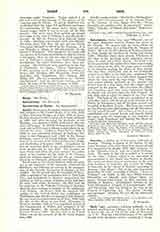

Saul, Hebrew: SAVL, postulatus, referring probably to the petition mentioned in I Kings, viii, 5, the first King of Israel, the son of Cis of the tribe of Benjamin (ix, 1, 2). Waiving critical discussion of the parallel though often divergent sources underlying I Kings, suffice it to say that the narrative of the life and times of Saul is constructed from two traditional accounts each of which has its particular viewpoint. This appears especially in the divergent accounts relative to the circumstances attending the election of Saul and his fall from Divine favor. The prophet Samuel, who is counted as the last of the great Judges of Israel, was growing old and the administration of civic and religious affairs had been confided to his sons. These proved unfaithful to their trust and the people being dissatisfied petitioned Samuel to select a king to rule over them after the manner of the other nations. Samuel resents this request, and the Lord, though affirming it to be an offense against Himself, a virtual rejection of the theocratic regime, nevertheless instructs the prophet to accede to the demands of the people. Samuel informs them of the Lord’s displeasure and predicts the retributory evils that will come upon them through the exactions of the future king (I Kings, viii). The choice of the new ruler is determined by a providential incident. Saul, in quest of his father’s strayed asses, happens to consult Samuel the “seer” in the hope of obtaining information as to their whereabouts. The prophet assures him of their safety, and after entertaining Saul, reveals to him his mission with regard to the Chosen People and anoints him king. Forthwith Saul’s heart is changed, and to the surprise of many he prophesies in the midst of the company of prophets (I Kings, x, 10). A month after these events the newly-chosen king, who had hitherto refrained from asserting his royal prerogatives, justifies his election by defeating the Ammonites and delivering Jabes Galaad. Later he engages in war with the Philistines, and being in straits, he presumes to offer the holocaust because of Samuel’s unexplained delay in arriving on the scene. For this usurpation of the priestly function he is reproved by the prophet and already the end of his kingdom is announced (I Kings, xiii).
Illustrative of the composite character of the narrative is the fact that an entirely different motive for his rejection is given in chapter xv, viz. his failure to carry out fully the command of the Lord to utterly destroy the tribe of Amalec. Consequently upon the Lord’s disfavor Samuel is directed to anoint David to be a king “after God‘s own heart”, and though merely a shepherd boy he is taken into Saul’s household. The many graphic incidents connected with Saul’s jealousy and persecution of David are narrated in I Kings xviii-xxvii. The narrative goes on to relate how on the occasion of a new invasion by the Philistines, Saul, being now forsaken by Yahweh and still seeking superhuman guidance, has recourse to a witch living at Endor. Through her mediation the spirit of Samuel, who in the meantime had passed to his reward, is recalled. The departed prophet reproaches Saul for his infidelity and announces his impending fate at the hands of the Philistines (I Kings, xxviii). The fulfillment of this dire prediction is related in the final chapter of the First Book of Kings. Saul and his forces are overwhelmed by the Philistines; the valiant Jonathan and his brothers are slain in the battle, and the king, fearing lest he fall into the hands of the uncircumcised, begs his armor bearer to take his life. The latter, fearing to lay hands on the Lord’s anointed, refuses, and Saul being in desperate straits ends his life by falling on his own sword. His head was cut off by the victorious Philistines and sent as a trophy to the various towns of their country, while his body and those of his sons were hung on the walls of Bethsan, but the inhabitants of Jabes Galaad hearing of these things came in the night, and removing the bodies carried them to their own town and burnt them there, burying the ashes in the neighboring woods (I Kings, xxxi). Achinoam is mentioned as the wife of Saul (I Kings, xiv, 50). Three of his sons perished with him (I Kings, xxxi, 2), and another, Isboseth, who endeavored to continue the dynasty pf his fathers house, was assassinated by two captains of his own army (II Kings, v, 6). Thus was removed the last obstacle to the accession of King David.
JAMES F. DRISCOLL

